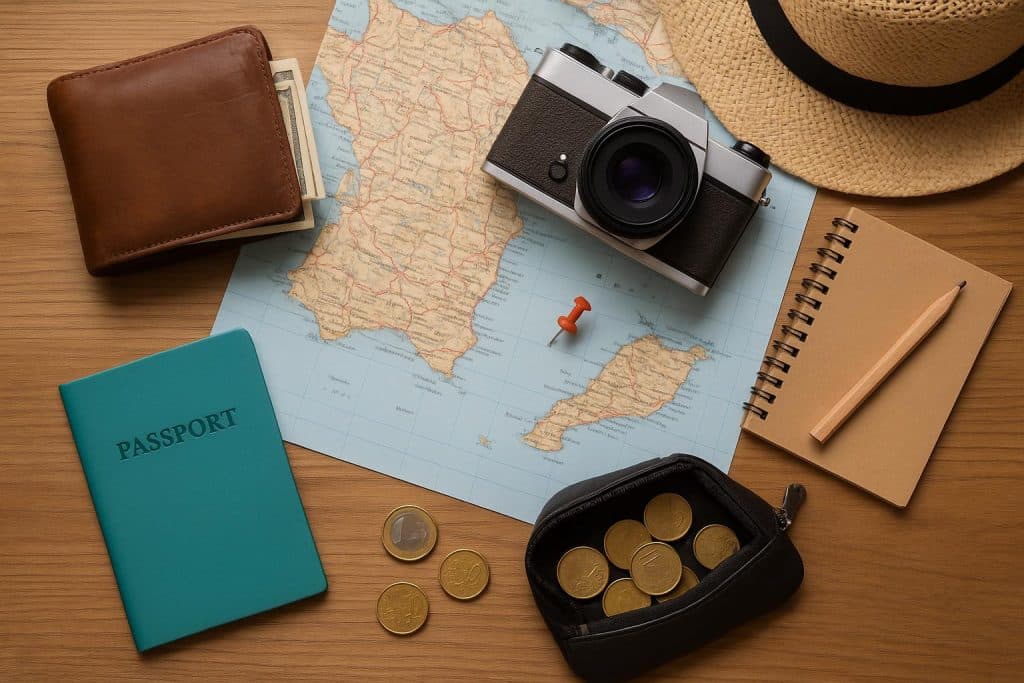Making the Most of Your Travel Money
Travel is one of life’s greatest joys, but it can also become one of its biggest expenses if you’re not careful. From flights and hotels to food and souvenirs, costs add up quickly. Staying on budget while traveling doesn’t mean cutting out fun—it means being intentional about how you spend so that you get the most value from your money. Think of it like understanding finances in general. For example, when people look up secured loan definition and meaning, they learn it’s a type of loan backed by collateral, which lowers the risk for lenders. In the same way, budgeting while traveling lowers your risk of overspending and protects your financial stability. A smart plan lets you enjoy adventures without worrying about draining your wallet.
Plan Ahead Without Overplanning
One of the best ways to stick to a budget is to plan before you go. Researching destinations, comparing flights, and booking accommodations early can save a lot of money. At the same time, it’s important not to plan every single detail because that can lead to stress or missed opportunities. A balance of planning major expenses and leaving room for flexibility ensures you stay on budget without losing spontaneity. Knowing the average costs of transportation, meals, and activities ahead of time also gives you a clear sense of how much you’ll need daily.
Choose Accommodations Wisely
Hotels often eat up the largest chunk of a travel budget. While luxury stays are tempting, there are many affordable options that still provide comfort. Hostels, guesthouses, and short-term rentals can be much cheaper while offering a more authentic experience. Some travelers also choose to stay outside of city centers where prices are lower, then commute into attractions. No matter where you stay, looking for places that include breakfast or free amenities like Wi-Fi can stretch your budget further.
Save on Food Without Missing Out
Dining is one of the best parts of traveling, but eating out for every meal can drain your wallet. A smart tip is to mix restaurant meals with cheaper options. Grab breakfast from a local bakery, pick up fresh items at markets, or cook simple meals if your accommodation has a kitchen. Street food is another way to experience authentic flavors at a fraction of the cost. Instead of splurging on every meal, choose a few special ones to enjoy and balance them with affordable local options.
Transportation Tips That Add Up
Getting around can be surprisingly expensive if you’re not prepared. Taxis and ride-shares may seem convenient, but they add up quickly. Public transportation—like buses, trains, or metros—is usually much cheaper and offers a chance to experience the city like a local. In some places, walking or renting a bike not only saves money but also provides a better view of your surroundings. If you’re traveling between cities, booking buses or trains in advance often comes with big discounts.
Prioritize Experiences Over Souvenirs
It’s tempting to load your suitcase with souvenirs, but these items can eat into your budget and weigh you down. Memories from experiences, like tours, hikes, or cultural events, often bring more long-term satisfaction than material objects. Take photos, write in a journal, or pick up small, meaningful items like postcards instead of spending heavily on things that may lose value once you get home. Shifting your spending toward experiences ensures your money goes toward moments you’ll truly remember.
Set a Daily Spending Limit
One of the easiest ways to stay on budget is to decide on a daily spending limit. Break down your total travel budget by the number of days and set that amount as your cap. This makes it easier to track your expenses and avoid surprises. If you underspend one day, you can roll the savings over to another day for a splurge. Sticking to a daily budget keeps you accountable while still allowing flexibility for special opportunities.
Use Technology to Track Spending
Budgeting apps and even simple note-taking tools on your phone can help you track every dollar spent. Recording expenses in real time keeps you aware of how much you have left and prevents overspending. Many apps can also categorize expenses into food, lodging, transportation, and entertainment, which makes it easier to see where your money is going and where you can cut back if needed.
Travel Slowly to Save More
Rushing from place to place may seem exciting, but it often costs more in transportation, accommodations, and food. Traveling slowly—spending more days in one city or country—lets you settle into a routine and discover affordable local options. Longer stays can also lead to discounts on lodging and the chance to shop for groceries or explore less touristy areas. Slow travel not only saves money but also provides a deeper experience.
Conclusion: Enjoy More by Spending Smarter
Traveling on a budget doesn’t mean sacrificing joy or adventure. It means being mindful of where your money goes and choosing what truly adds value to your trip. By planning ahead, making smart choices with accommodations and food, prioritizing experiences, and tracking expenses, you can explore the world without financial stress. The reward is clear: more freedom, more memories, and a trip that leaves you richer in experiences rather than poorer in your bank account.

